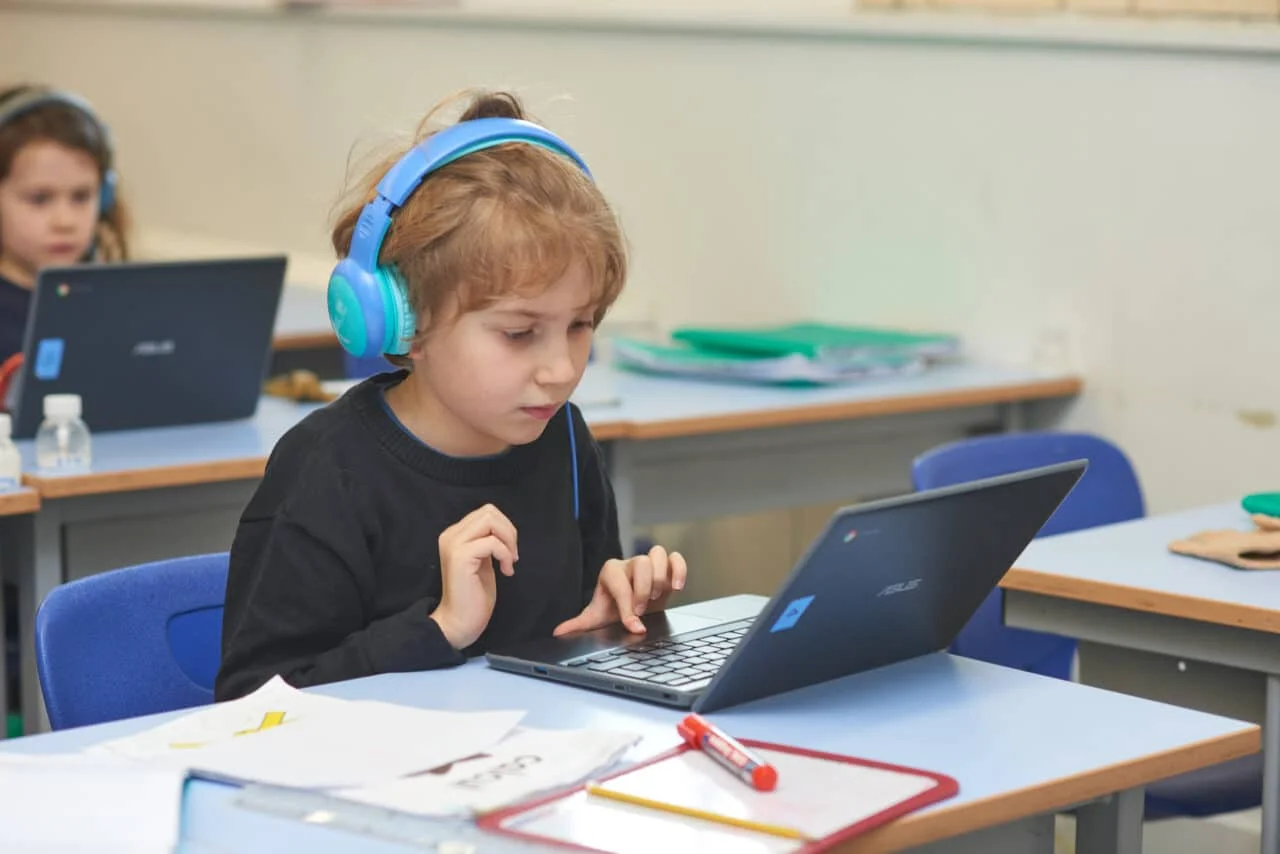Why Should Parents Foster Home-Based Learning?
To foster home-based learning benefits you in numerous ways. You can create personalized schedules and curriculum plans that cater to your child’s unique needs and interests. This tailored approach has been proven to boost student engagement and academic achievement. By providing individualized attention and encouraging exploration, you foster creativity and critical thinking skills. Additionally, home-based learning strengthens family bonds through shared experiences and quality time together. Embracing this educational journey empowers you to support your child’s growth and development in a meaningful and impactful way. Find out more about the advantages awaiting you in this enriching path.
Key Takeaways
- Personalized schedules cater to individual needs and preferences.
- Tailored curriculum enhances academic outcomes and engagement.
- Customized instruction provides immediate feedback and boosts confidence.
- Hands-on activities foster curiosity, critical thinking, and creativity.
- Family bonding is strengthened through collaborative learning experiences.
Enhanced Flexibility in Learning

Parents who choose home-based learning for their children often experience enhanced flexibility in their educational approach. This flexibility stems from the ability to create personalized schedules tailored to each child’s needs and learning style. By designing adaptable curriculum plans, parents can guarantee that their children receive a tailored education that meets their individual requirements.
Additionally, home-based learning offers versatile learning environments, allowing students to study in a variety of settings that suit their preferences and optimize their productivity. Whether it’s a cozy reading nook, a backyard nature classroom, or a dedicated study area, the flexibility of learning at home enables children to thrive in environments that support their learning.
Furthermore, home-based learning provides access to a wide range of flexible resources that can be customized to suit each child’s unique interests and learning pace. From online educational platforms to hands-on materials, parents can select resources that cater to their child’s specific needs, ensuring a diverse and engaging learning experience. This adaptability and personalized approach in resources contribute to a more effective and enjoyable educational journey for children learning at home.
Tailored Educational Experiences

Personalizing learning experiences is essential for maximizing educational outcomes and fostering a deeper understanding of academic concepts and skills. When parents foster home-based learning, they have the unique opportunity to tailor educational experiences to suit their child’s individual needs and learning style.
Personalized learning involves creating a customized curriculum that aligns with the child’s strengths, interests, and pace of learning. By doing so, parents can address areas where their child may need additional support, challenge them with more advanced material in subjects they excel at, and cater to their specific learning preferences.
Research indicates that personalized learning leads to increased student engagement, motivation, and academic achievement. When children feel that their education is tailored to them, they are more likely to take ownership of their learning and develop a deeper connection to the material.
Home-based learning allows parents to adapt teaching methods, resources, and pacing to best meet their child’s individual needs, ultimately leading to a more effective and fulfilling educational experience.
Promotes Individualized Attention

Tailoring educational experiences at home fosters individualized attention, allowing for a more targeted and effective learning approach. Personalized learning is a key benefit of home-based education, as it enables you to cater specifically to your child’s unique learning style, interests, and pace.
With customized instruction, you can focus on areas where your child may need extra help, while also challenging them in subjects where they excel. This one-on-one approach guarantees that your child receives the attention they need to thrive academically.
Research shows that individualized attention leads to better academic outcomes. By addressing your child’s specific learning needs, you can help them reach their full potential. Home-based learning provides the flexibility to adapt teaching methods to suit your child, fostering a deeper understanding of concepts and enhancing retention.
Additionally, the close interaction between you and your child during learning sessions allows for immediate feedback and encouragement, further boosting their confidence and motivation. Overall, promoting individualized attention through home-based learning sets the stage for a more successful educational journey.
Encourages Exploration and Creativity

Facilitating home-based learning environments nurtures a child’s natural inclination towards exploration and creativity, fostering a dynamic and engaging educational experience. By incorporating hands-on activities into your child’s daily learning routine, you provide opportunities for them to engage with materials in a tangible way. These activities stimulate curiosity, encourage experimentation, and spark creativity. Critical thinking skills are also honed through such interactions, as children learn to analyze information, solve problems, and make connections between different concepts.
Encouraging exploration and creativity at home allows children to learn through discovery and play, making the educational process more enjoyable and memorable. When children are actively engaged in hands-on activities, they’re more likely to retain information and develop a deeper understanding of the subject matter.
Additionally, fostering a creative environment nurtures a child’s imagination and innovation, skills that are essential for success in an ever-evolving world. Embrace the opportunity to cultivate exploration and creativity in your child’s learning journey, and witness the growth and development that ensues.
Cultivates Strong Family Bonds

Strengthening family bonds through home-based learning fosters a sense of unity and shared experiences among all members. Engaging in various family activities as part of the learning process not only enhances academic growth but also nurtures relationships. Quality time spent together delving into educational tasks creates lasting memories and strengthens the emotional connections within the family unit.
Participating in home-based learning activities encourages collaboration and communication among family members. Whether it’s working on a science experiment together, solving a challenging math problem, or delving into a historical event, these shared experiences foster a deeper understanding and appreciation for each other’s strengths and capabilities. By supporting one another through learning challenges, family members build trust and empathy, essential components of strong family bonds.
Furthermore, the joy of celebrating achievements and overcoming obstacles together during home-based learning cultivates a sense of togetherness and solidarity. These shared successes create a supportive environment where every family member feels valued and respected, ultimately strengthening the familial relationships.
In essence, home-based learning serves as a catalyst for building strong family bonds through quality time and engaging in educational activities.
Frequently Asked Questions
How Can Home-Based Learning Accommodate Different Learning Styles?
To accommodate different learning styles in home-based learning, offer visual aids for visual learners, hands-on activities for kinesthetic learners, use audiobooks or discussions for auditory learners. Tailoring activities to each style promotes an inclusive learning environment.
Are There Specific Resources Needed for Home-Based Learning?
To facilitate home-based learning effectively, you should guarantee technology access, provide educational materials, create a conducive learning environment, and encourage parental involvement. These resources are essential to support diverse learning needs and foster academic growth.
How Can Parents Balance Work and Facilitating Home-Based Learning?
To balance work and facilitating home-based learning effectively, prioritize time management. Communicate clear expectations and schedules with your employer, children, and partner. Stay flexible, and build a strong support system for assistance and guidance when needed.
What Are the Long-Term Academic Benefits of Home-Based Learning?
Enhanced critical thinking skills are a key benefit of home-based learning. Improved retention, greater individualization, and increased motivation also contribute to long-term academic success. These factors create a strong educational foundation for students.
How Can Home-Based Learning Address Socialization Concerns?
To address socialization concerns, home-based learning can offer socialization benefits through virtual interactions with peers, community involvement, and participation in extracurricular activities. These avenues foster well-rounded development and meaningful social connections for students.
Conclusion
To sum up, fostering home-based learning for your children offers a multitude of benefits, including:
- Enhanced flexibility
- Tailored educational experiences
- Individualized attention
- Exploration and creativity
- Strong family bonds.
By embracing this approach, parents can provide their children with a well-rounded education that meets their unique needs and interests.
Research shows that home-based learning can have a positive impact on academic achievement and overall development, making it a worthwhile investment in your child’s future.

Hey there! 👋 I’m a proud mom and passionate writer, sharing my parenting journey. 📝 Join me as I navigate the ups and downs of motherhood, offering tips, advice, and a sprinkle of humor along the way. 🌟







